| ISLAND Newsletter - November 2021 |
View in browser | Print |
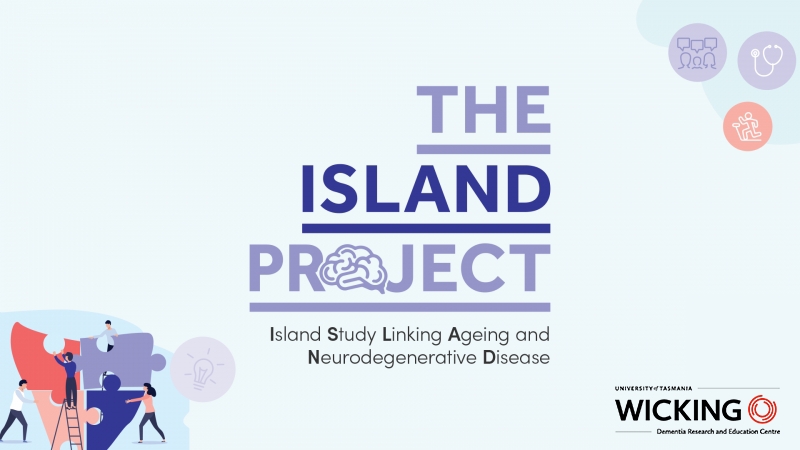 | | | 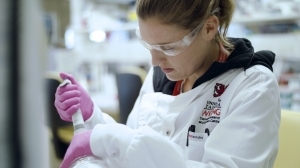
My name is Dr Jessica Collins and I am a neuroscientist at the Wicking Dementia Research and Education Centre. My research investigates whether brain proteins in the blood can be used to monitor brain health and detect early changes that predict dementia. In dementia, the cells in the brain called neurons, become damaged and die many years before a person develops symptoms such as memory loss and confusion. The brain within the skull is a relatively hard organ to access for monitoring purposes, which significantly limits our ability to detect damage before symptoms occur. Recent research has shown that the proteins inside neurons in the brain can be released into the blood when these cells become damaged or die. Our research team is investigating whether a simple blood tests to detect these neuronal protein markers, called ‘biomarkers', can be used to determine when these changes are occurring in the brain. This blood test could then be used by doctors to monitor peoples brain health, similar to how we monitor things like cholesterol for heart health, so that people at risk of dementia could be identified early and perhaps the condition be delayed or prevented. As part of the ISLAND Project, I work closely with Dr Edward Hill and Associate Professor Anna King on the blood biomarkers and cognition project. You may have met me face-to-face at one of our research clinics in Hobart, Launceston or Devonport when donating blood for our study! I also work in our laboratories in Hobart where I conduct many of the blood biomarker tests as well as working on the development of new biomarker tests. In December, I will be running the Tasmania Trail from Devonport to Dover as part of the RUN for the ISLAND team, raising funds to support the ISLAND project. If you're interested in finding out more about RUN for the ISLAND and the team, click here. I hope to meet some of you at the RUN events along the way (see below for dates/venues)!
| | | 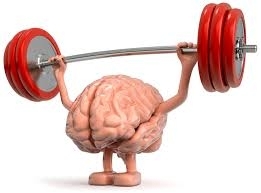
Get active for brain health
Physical activity is one of those things that many of us know we should be doing more of! Did you know that regular physical activity is associated with lower risk of cognitive decline and dementia as we get older? The ISLAND Project wants to make all Tasmanians aware of how they can reduce their personal risk of dementia. Taking more exercise is one such way. We know there are wide ranging benefits of engaging in regular physical activity including maintaining a healthy weight, improving your sleep and mood and managing cholesterol and blood pressure. It is now clear that regular physical activity also directly benefits brain health. Research now tells us that people who are physically active throughout their lifetime have a lower risk of developing dementia as they get older. Interestingly, it seems that the evidence points towards not every type of cognitive performance benefiting in the same way. Results show that exercise is especially beneficial for the frontal lobe of the brain and anything to do with speed, such as processing speed. Whereas for memory, the findings are much more diverse and controversial. The type of exercise is also important, and a combination of aerobic exercise and strength training is thought to be of most benefit for our brains. Aerobic exercise has to be intense enough to increase our heartbeat and breathing rate in order to be of benefit. We don’t yet know the right amount of exercise (frequency and duration) that benefits our brains but at least 150 minutes per week is recommended. Trying to do 30 minutes of exercise most days of the week is perhaps a good way to think about that. Strength training is also known to be beneficial. This is training where you might use weights to strengthen your muscles but it also benefits our brains. We’re not yet seeing the same level of benefit for exercise that helps balance or relaxation such as yoga. However there are other benefits of this type of exercise such as reducing risk of falls and improving balance. Check out the infographic here for a summary of latest evidence relating to exercise. It is never too late to start or increase physical activity and always good to check with your GP beforehand.
| | | 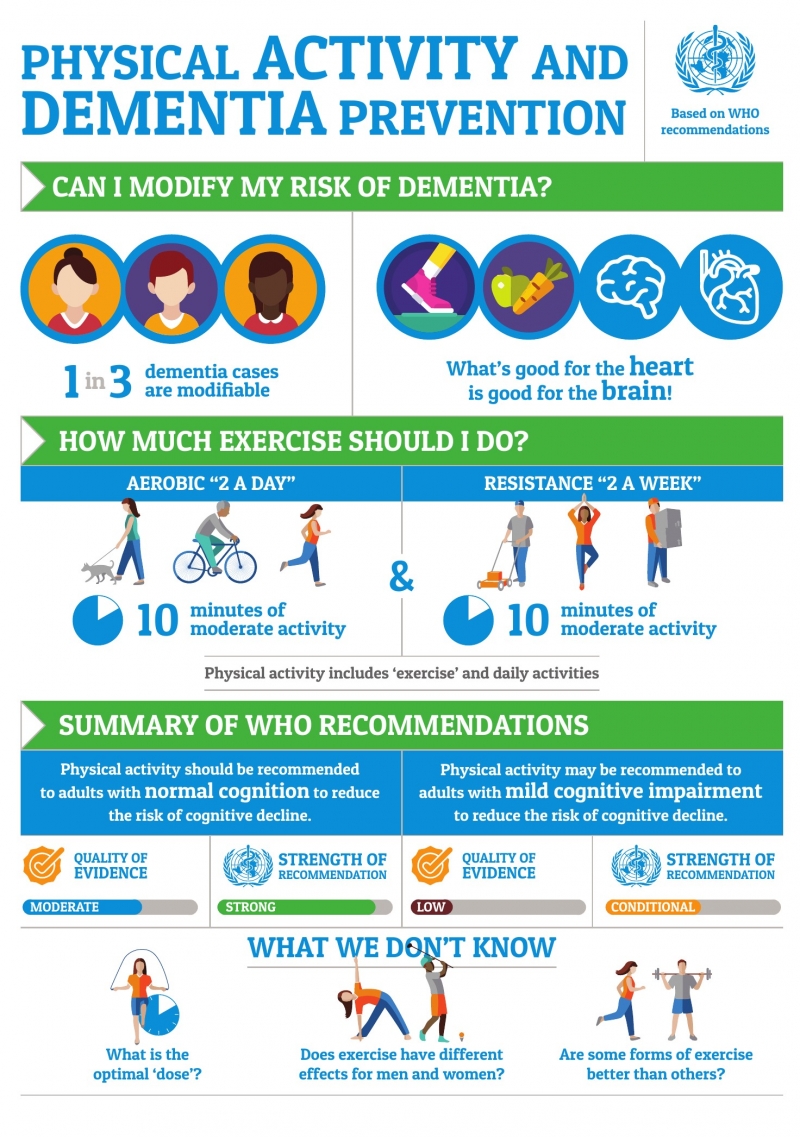 | | | 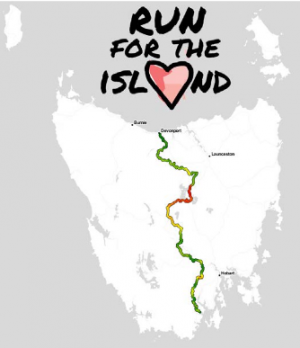
RUN for the ISLAND events
As well as tackling the 480km Tasmanian Trail, the RUN for the ISLAND team will be hosting local events along the way to promote dementia prevention and research. Come along and meet the RUN and ISLAND teams and support their efforts to raise funds for dementia research. - DEVONPORT - Devonport Library, Friday 17th December, 4:30pm - 5:30pm, Launch event, Devonport Senior Citizens Club 7pm - 8pm, AND Devonport Park Run, Saturday 18th December
- LATROBE - Hill Street Store, Saturday 18th December, 10am - 11am
- DELORAINE - Deloraine Newsagency, Sunday 19th December, 10am - 11am
- MIENA - Central Highlands Lodge, Sunday 19th December, 7pm - 8pm
- OUSE - Country Club, Monday 20th December, 7pm - 8pm
- NEW NORFOLK - Bowls Club, Tuesday 21st December, 7pm - 8pm AND New Norfolk Library, Wednesday 22nd December, 10am - 11am
- DOVER - Golf Club, Wednesday 22nd December, 7pm - 8pm
Read more
| | | 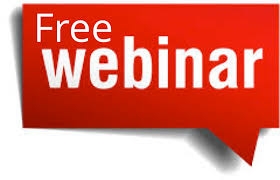
RUN for the ISLAND webinar
Want to find out more about our fundraising initiative, RUN for the ISLAND and meet the team taking on the challenge of running the Tasmania Trail? Join Eddy, James, Jess and Josh, ISLAND research fellow, Larissa and Wicking Dementia Centre Director, Professor James Vickers in this ZOOM webinar. The webinar will give you an opportunity to ask the team questions and find out how this initiative will support our research. Monday, 13 December 11am to 12pm Register here.
| | | 
Annual surveys are now open for you to complete
ISLAND research participants have received an email invitation to do the ISLAND annual assessments and we encourage you to consider completing these surveys before they close on November 22nd. The surveys are a core research activity for the ISLAND Project and gives you another opportunity to update your Dementia Risk Profile to find out what has changed since last time. Additionally, if you missed the chance to complete the online thinking and memory tasks in August, you can access these again now. Thank you for your time and effort in supporting the ISLAND Project's research and your contributions are very valuable to us. We could not do this research without you! Log into your ISLAND Home to access surveys here
| | | 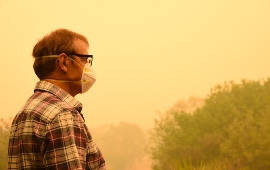
Back by popular demand – Bushfires and Your Health short course
Participants of the ISLAND Resilience Initiative will again be able to access the Bushfires and Your Health short course from 25 November. The information will be the same as the previous version, however there won’t be discussion boards or a final survey. You can still contact us by emailing bushfirehealth@utas.edu.au. Many thanks to those participants who completed the course and the survey when it was run over September.
| | | 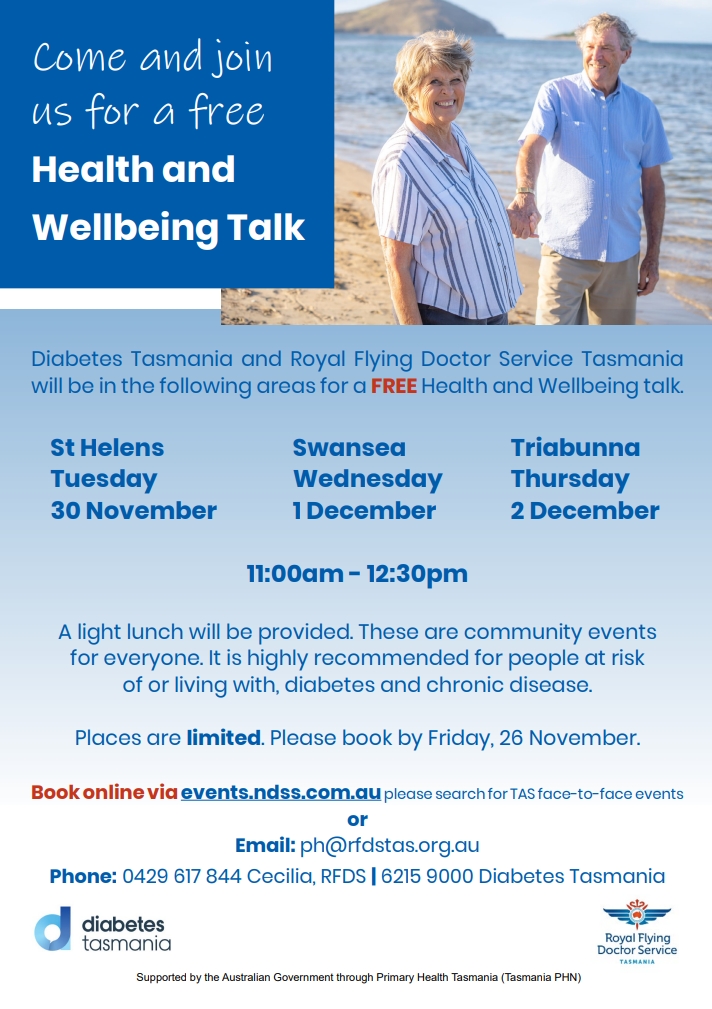 | | ISLAND Project Partners | |
|  | |
The University of Tasmania received funding from the Australian Government. Views and conclusions expressed in this publication are those of its authors, and may not be the same as those held by the Department of Health.
|
|
Stay Connected:
|


|
islandproject.utas.edu.au
|
| |
|
|